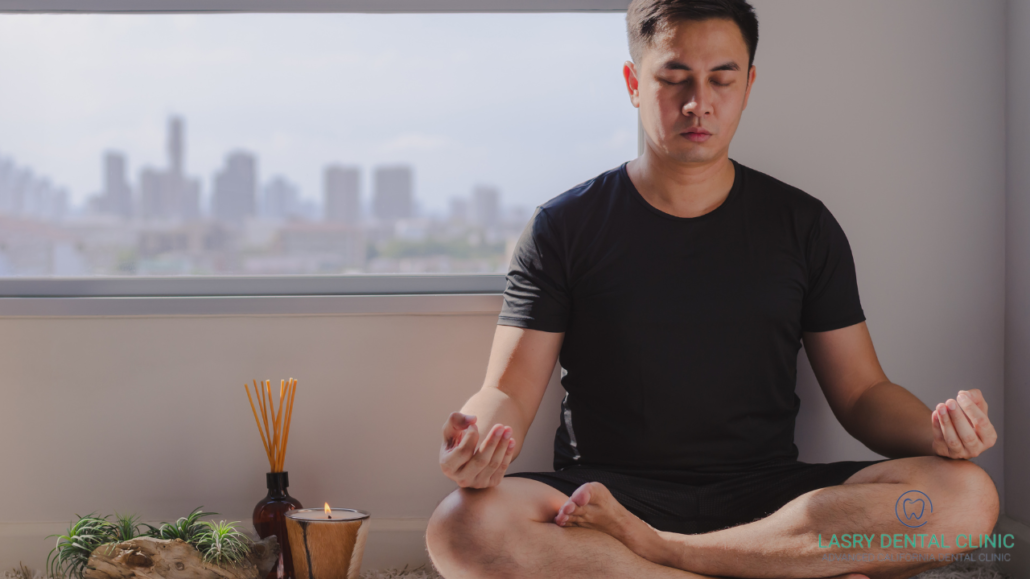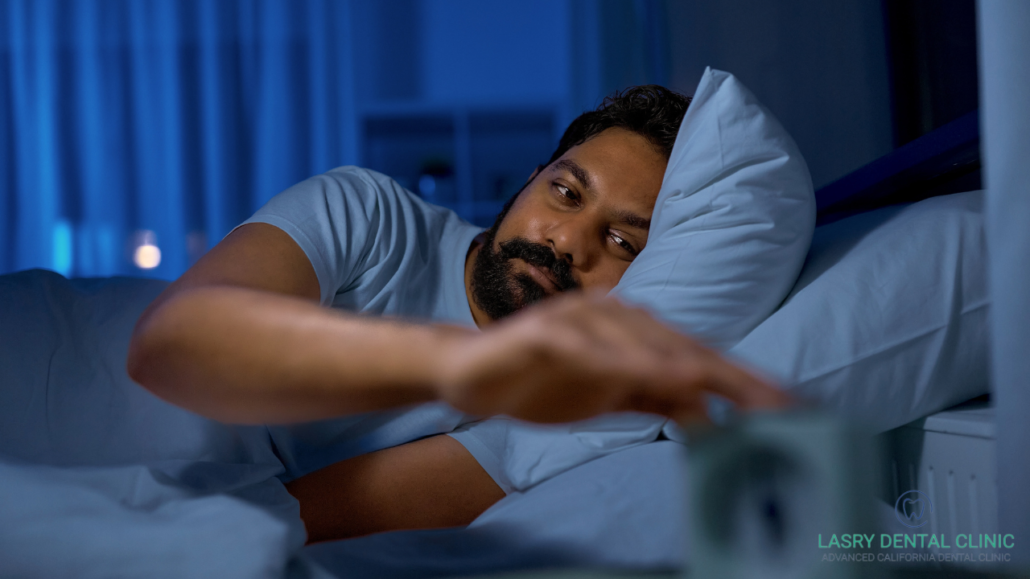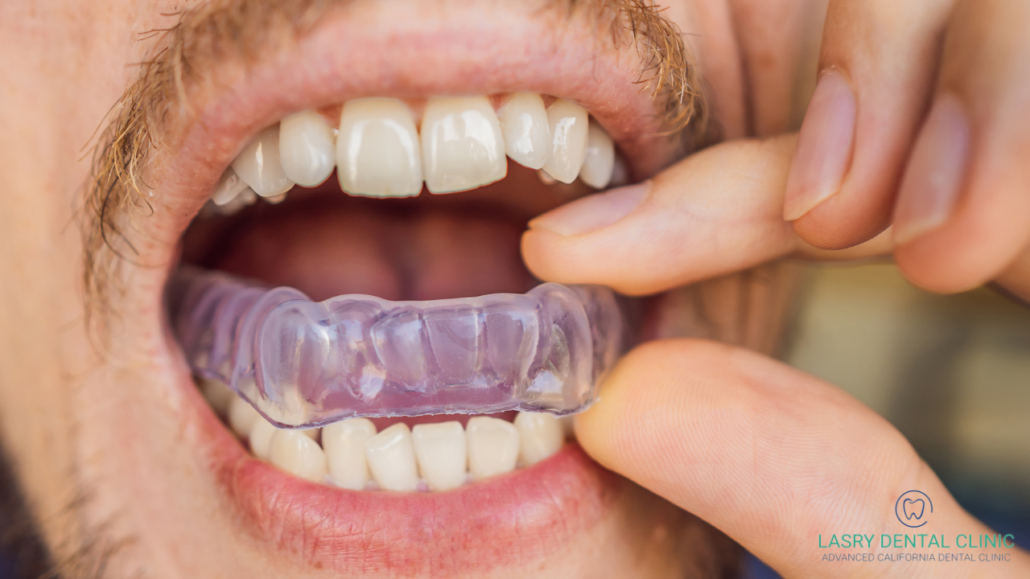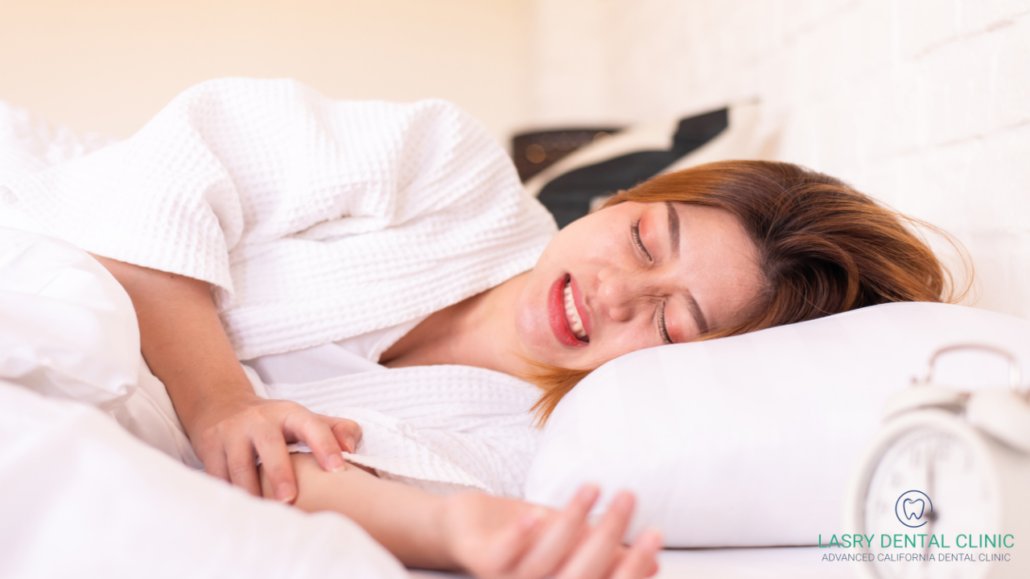How To Stop Your Nightly Teeth Grinding Habit: 3 Sneaky Tips To Reduce Pain
Do you wake up with a sore jaw or headaches? You probably have a habit of nightly teeth grinding, also known as sleep bruxism.
It’s a common problem that affects about 8.6% of the population. While it can reduce with age, learning how to stop teeth grinding when you’re asleep can save you a ton of money in dental bills.
But the good news is that there are effective ways to stop it before it gets that far. Here are three pain-free tips to help you put an end to teeth grinding and enjoy a peaceful night’s sleep.
RELATED: HOW MUCH DOES IT COST TO GO TO THE DENTIST WITHOUT INSURANCE?
Understanding Teeth Grinding When Sleeping
Nightly teeth grinding, or sleep bruxism, is when you clench or grind your teeth, often unknowingly, during sleep. It can lead to a ton of dental problems, including:
- Worn-down teeth
- Jaw pain
- Headaches
- Toothaches
- Cracked teeth
- Disrupted sleep patterns.
To tackle this issue, let’s delve into three pain-free strategies that can make a real difference.
1. Stress Management Techniques
Stress is one of the leading causes of teeth grinding. According to a study by the American Dental Association (ADA), stress-related bruxism is prevalent among 71% of adults.
Finding effective ways to manage stress can significantly reduce the frequency and intensity of grinding episodes.
Believe it or not, actively adding relaxation techniques into your daily routine can help alleviate your nightly teeth grinding. In some cases, it can disappear altogether!
The best part? It only takes a few minutes of intentional practice— and it’s free! Here are a few ideas to get you started:
- Daily deep breathing exercises
- Meditation
- Yoga
These practices can help calm your mind and relax your jaw muscles, promoting a more peaceful sleep.
RELATED: HOW TO PERMANENTLY CURE TMJ AND RELIEVE PAIN
2. Adjusting Your Sleep Environment
Creating a sleep-friendly environment can work wonders in combating teeth grinding. Make sure your bedroom is conducive to relaxation and promotes good sleep hygiene. Here are some suggestions:
- Keep electronic devices away
- Dim the lights
- Maintain a comfortable room temperature
A supportive pillow and mattress can help align your head and neck properly, reducing muscle tension and minimizing the likelihood of nightly teeth grinding.
3. Wearing a Nightguard
A nightguard, also known as a splint, is a custom-fitted dental appliance worn during sleep to protect your teeth from grinding.
It acts as a cushion, absorbing the pressure and preventing direct contact between your upper and lower teeth. Nightguards are widely available and can be obtained through your dentist.
RELATED: 3 AFFORDABLE DENTAL MOUTH GUARDS & HOW MUCH THEY COST
Conclusion
Teeth grinding when sleeping can be disruptive and damaging to your oral health. By implementing these three pain-free tips, you can take control of your bruxism and enjoy a peaceful night’s sleep. Remember to manage stress effectively, create a sleep-friendly environment, and consider using a nightguard.
Remember, you don’t have to face teeth grinding alone. Seek professional guidance from your dentist to ensure proper diagnosis and personalized treatment options. Here’s to a restful and bruxism-free sleep!
RELATED: CAN BAD TEETH CAUSE HEADACHES & IS IT AN EMERGENCY?
Nightly Teeth Grinding FAQs
How long does teeth grinding pain last?
The duration of teeth grinding pain can vary depending on the individual and the severity of the condition. In most cases, the pain from teeth grinding is temporary and subsides within a few days. However, if bruxism persists or is accompanied by other dental issues, it’s advisable to consult a dentist for a proper evaluation and appropriate treatment.
Does teeth grinding cause headaches?
Yes, teeth grinding can cause headaches. The excessive pressure and muscle tension created during teeth grinding can radiate to the head, leading to headaches. The clenching and grinding motion can strain the jaw muscles and surrounding areas, triggering tension headaches or migraines. If you frequently experience headaches along with teeth grinding, it is recommended to consult a dentist for evaluation and to explore treatment options to alleviate both the grinding and associated headaches.
What types of retainers can I get for teeth grinding?
There are various types of retainers that can be used for teeth grinding. Here are a few options:
- Nightguards: Custom-fitted dental appliances worn during sleep to protect teeth from grinding.
- Bite Splints: Similar to nightguards, these splints cover the upper or lower teeth to provide a cushioning effect.
- NTI Splints: Specifically designed to prevent clenching and grinding by covering only the front teeth.
- Botox Injections: In some cases, dentists may recommend Botox injections to relax the jaw muscles and reduce grinding.
Don’t let your nightly teeth grinding wear you (or your teeth) down. Teeth grinding can cause a lot of pain, and it can destroy your teeth over time. If you don’t want to go through a root canal and pay the expense of a dental implant,








Leave a Reply
Want to join the discussion?Feel free to contribute!